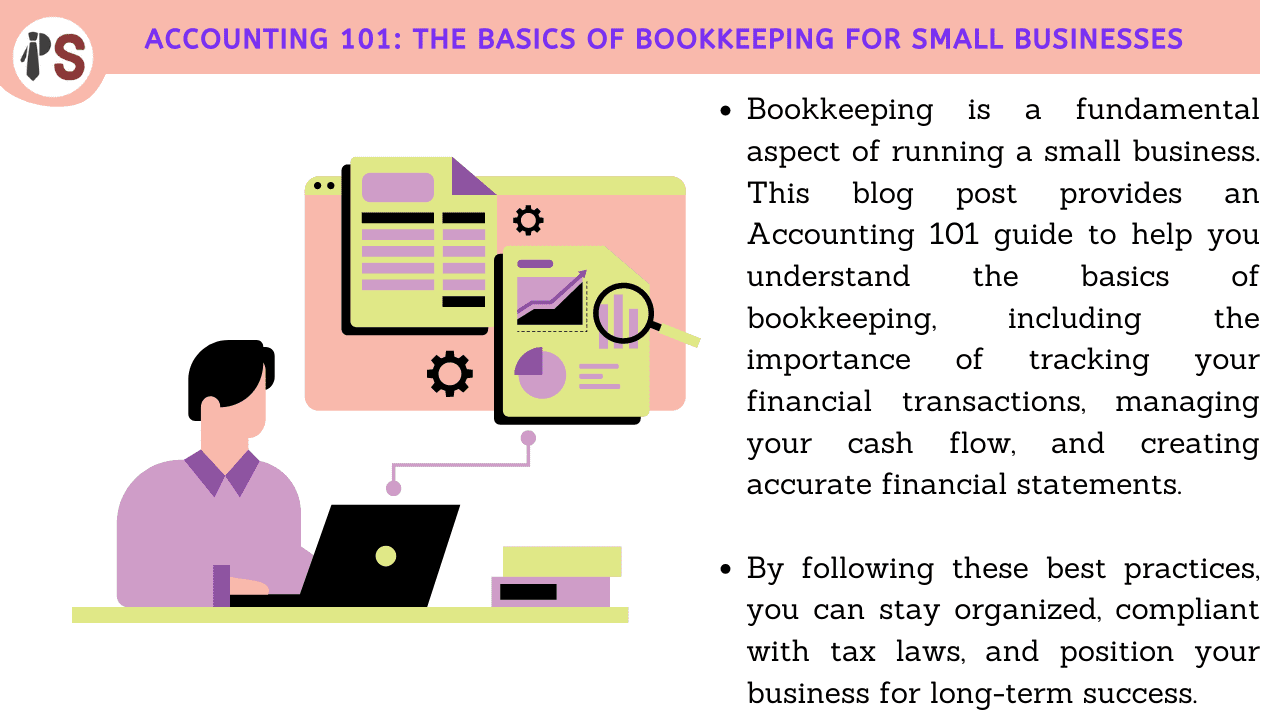
As a small business owner, keeping your finances in order is critical to your success. One of the most important aspects of this is bookkeeping. Bookkeeping involves the process of recording, organizing, and maintaining your financial transactions. It provides the foundation for your accounting and financial reporting, and helps you make informed business decisions.
In this blog post, we’ll cover the basics of bookkeeping for small businesses, including what bookkeeping is, why it’s important, and some key bookkeeping terms you need to know.
Bookkeeping is the process of recording, organizing, and maintaining financial transactions for your business. It involves keeping track of all money coming in and going out of your business, including sales, expenses, purchases, and payments. Bookkeeping is essential for accurately tracking your business’s financial health, making informed decisions, and meeting tax obligations.
Bookkeeping is important for several reasons:
Accurate financial records: Bookkeeping helps you keep accurate records of all your financial transactions, so you can easily track your business’s financial health.
Informed decision-making: Accurate financial records can help you make informed business decisions, such as when to expand, when to cut expenses, and when to hire new employees.
Tax compliance: Bookkeeping is necessary for preparing your tax returns and meeting your tax obligations.
Here are some key bookkeeping terms you need to know:
Accounts Payable (AP): This is the money your business owes to vendors or suppliers for goods and services purchased on credit.
Accounts Receivable (AR): This is the money owed to your business by customers for goods or services sold on credit.
Balance Sheet: This is a financial statement that shows your business’s assets, liabilities, and equity at a given point in time.
Cash Basis: This is a method of accounting where income and expenses are recorded when cash is received or paid.
Chart of Accounts: This is a list of all the accounts used in your bookkeeping system, such as assets, liabilities, income, and expenses.
General Ledger: This is the main accounting record that summarizes all financial transactions for your business.
Here are some basic steps for doing bookkeeping:
Choose a bookkeeping method: You can use manual methods such as pen and paper or a spreadsheet, or use bookkeeping software.
Set up a chart of accounts: Create a list of all the accounts you will use in your bookkeeping system.
Record transactions: Record all financial transactions, such as sales, expenses, and payments, in your bookkeeping system.
Reconcile accounts: Compare your bookkeeping records to bank statements or other financial statements to ensure they are accurate.
Generate financial reports: Use your bookkeeping system to generate financial reports such as profit and loss statements and balance sheets.
Bookkeeping is an essential part of running a small business. It provides the foundation for your accounting and financial reporting, helps you make informed decisions, and ensures you meet your tax obligations. By following the basic steps outlined above, you can start keeping accurate financial records for your business today.
At Professional Saathi, we offer a range of business consultancy services that help businesses improve their performance, achieve growth, and overcome challenges.
Copyright 2026 © Created By KTPG PROFESSIONAL SAATHI CORPORATE CONSULTANT PRIVATE LIMITED, All Rights Reserved.
Leave Your Comment